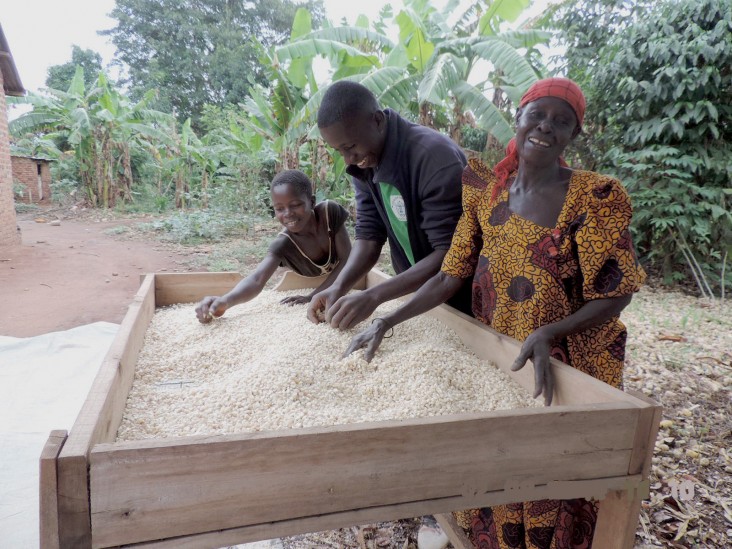
USAID’s agriculture programs address these challenges by reducing food insecurity and increasing household incomes. USAID focuses on advancing broad-based economic growth and food security by working comprehensively in specific crops (maize, coffee and beans) and on improving nutrition, especially among the most vulnerable populations. USAID’s assistance for agriculture is aligned with the Government of Uganda’s Agricultural Sector Strategic Plan.
Uganda is a focus of the U.S. Government’s global hunger and food security initiative, Feed the Future. Through Feed the Future, USAID investments focus on the three value chains—maize, coffee and beans—with the greatest market potential, nutritional benefits and income potential for farming households. Coffee is the country’s most important export crop; maize will contribute to greater food security; and beans complement the maize to improve nutrition.
USAID’s efforts work to transform subsistence farms into more commercial operations. USAID also works to increase farmers’ skills in improved production, post-harvest handling and storage technologies. Agricultural programs include researching and promoting biotechnology products aimed at improving the productivity and disease resistance of key food and cash crops.
In addition, USAID’s programs focus on creating trade linkages and on making Ugandan products more competitive in national, regional and international markets. USAID’s training for farmers and agriculture dealers develop their business skills and technical capacity to increase their participation in national and regional trade. They also provide expertise to expand agricultural production, extension services to farmer associations, bulk marketing techniques and nutrition counseling to communities.








Comment
Make a general inquiry or suggest an improvement.